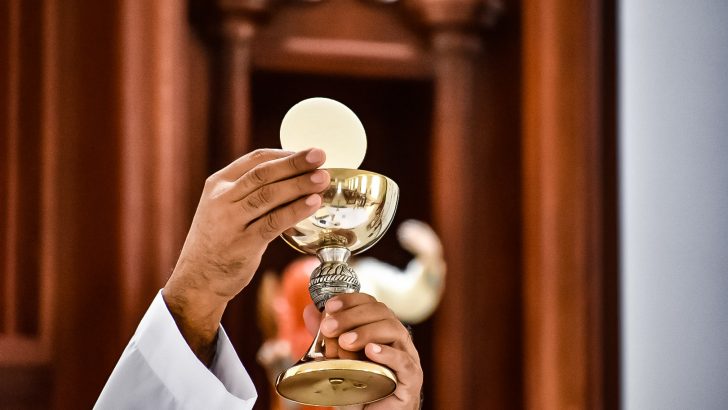The Diocese of Galway, Kilmacduagh and Kilfenora encompasses parishes in Mayo, Galway and Clare. There are 105,707 Catholics in the Diocese and the presiding bishop is Bishop Michael Duignan, who was appointed this year.
Ten meetings, encompassing seventeen parishes, across a diocese with thirty-nine parishes took place. In some cases, parishes combined to hold one meeting.
The Diocesan survey exceeded expectations. There was a total of 377 respondents to this survey, representing about 0.36% of the diocesan church communities in Galway, Kilmacduagh and Kilfenora, or an average of 9.7 respondents per parish. The sample size exceeds a confidence level of 90% with a margin of error of 5% and is therefore representative of the diocese of Galway, Kilmacduagh and Kilfenora.
Around two-thirds (68%) of the responses were received through the online survey. What is noteworthy is the consistency in the number of responses with comments (51%) regardless of format – online or paper.
Sacraments and faith-formation
“In many cases Confirmation is viewed as the “exit point”. This is in contrast to Pope Francis’ hope that the sacraments are the “special means for passing down this fullness, a means capable of engaging the entire person, body and spirit, interior life and relationships with others”.
Church as a community
The majority (79%) of respondents experience of church is a community in which they attend Mass. For the majority (81%) of those, the celebration of Mass is a reverent, uplifting and sacred experience.
Less than half (42%) of respondents believe they are listened to in their church community, while the majority (85%) of respondents feel their church community would benefit greatly if there were more opportunities to share views. Approximately half (51%) of respondents took the opportunity to share their personal views as part of this anonymous survey.
The majority (76%) of respondents are of the understanding that their church is a community where no one is excluded. However, less than half (49%) of respondents believe as a Christian community we are open to the opinions and experiences of all in our society.
Only one third (32%) of respondents experience both dialogue and participation in the decision making processes in their church community with over half (53%) of respondents experiencing a lack of transparency in the decision-making process.
Less than half (41%) of respondents believe that current services in our church community do not meet today’s needs. The majority (79%) of respondents agree however, that the delivery of faith formation programs to enrich our lives is the responsibility of church community leaders.
Most (90%) respondents believe we all need to participate in speaking on behalf of our Christian community and less than half (47%) of respondents find it difficult to express Christian values in today’s society. Furthermore, the majority (73%) of respondents agree with Pope Francis when he says “We have had enough of immorality and the mockery of ethics, goodness, faith and honesty.
Over 85% of respondents agree that “we are all individually responsible in the church community to ensure no one is excluded”. As a person of faith 73% of respondents want to help others to live out their service to society in a missionary way.
Women at the forefront
Throughout the listening process the role of women in the ‘Church we dream of’ has been voiced. One respondent captured that sentiment succinctly when they said “Women have a bigger role to play in the church. The church has relied on women in parishes for centuries for ‘housekeeping’ tasks.
What might the Holy Spirit be saying?
The consensus of those involved in this initial listening process is best captured by another respondent when they said, “I think the Church I grew up with my parents is totally different to one I experience today. It was a pleasure to be asked to have an opportunity to participate in this synodal journey Pope Francis has initiated. I hope and pray this is the beginning of a new Church in the years ahead”.



 A significant number of people (81%) in the Diocese of Galway, Kilmacduagh and Kilfenora found Mass to be 'a reverent, uplifting and sacred experience'.
A significant number of people (81%) in the Diocese of Galway, Kilmacduagh and Kilfenora found Mass to be 'a reverent, uplifting and sacred experience'.
